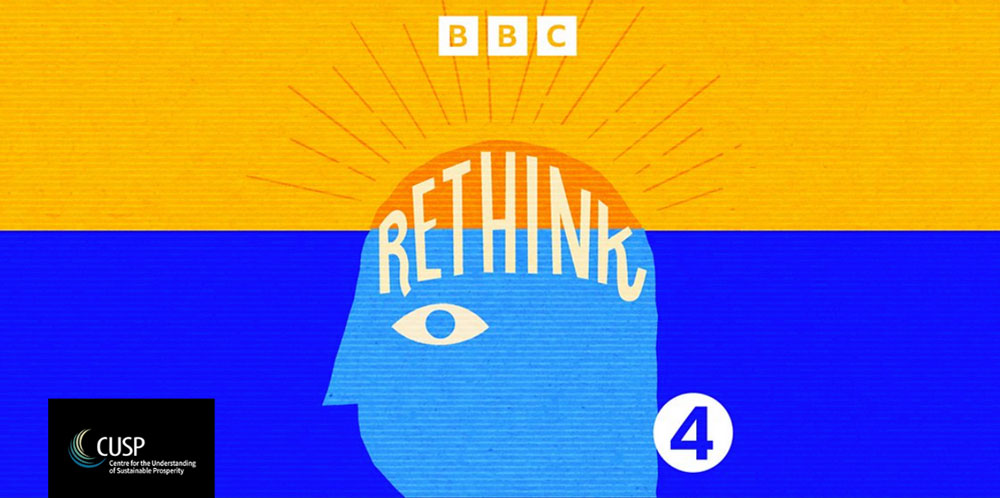A mantra for the green economy: 'as the poor get richer the rich get poorer'.
Amol Rajan explores what switching to a green economy may mean for the way we live and work and whether it’s compatible with financial growth. If, for the sake of the planet we need to cut production, consumption and perhaps profit, then how will we pay for the essential services we need in the future? There are some difficult choices to make that sound particularly tough amid a cost-of-living crisis. However, despite all the difficulties, there are those who foresee a cleaner, fairer and more enriching world.
Graihagh Jackson, presenter of the BBC podcast ‘The Climate Question’ is with Amol Rajan alongside guests Professor Tim Jackson, Bernice Lee, Najma Mohamed and Dr Rhian-Mari Thomas.
The full episode is available via the BBC website. If you have difficulties accessing the episode from outside the UK, please try Apple podcasts.
Podcasts→
Further reading
Let’s Be Less Productive—Restoring the Value of Care | Article by Tim Jackson for The New York Times
MARCH 26, 2020
Let’s Be Less Productive—Restoring the Value of Care | Article by Tim Jackson for The New York Times
Wellbeing Matters—Tackling growth dependency | Policy Briefing
FEBRUARY 28, 2020
Wellbeing Matters—Tackling growth dependency | Policy Briefing
The Post-Growth Challenge — Secular Stagnation, Inequality and the Limits to Growth | Working Paper by Tim Jackson
MAY 13, 2018
The Post-Growth Challenge — Secular Stagnation, Inequality and the Limits to Growth | Working Paper by Tim Jackson
Animation | Mental health in the context of growth-dependency and climate breakdown—Short-film animation
OCTOBER 9, 2022
Animation | Mental health in the context of growth-dependency and climate breakdown—Short-film animation
Why health should replace wealth as the heart of prosperity | Blog by Tim Jackson and Julian Sheather
NOVEMBER 5, 2021
Why health should replace wealth as the heart of prosperity | Blog by Tim Jackson and Julian Sheather
Paradise Lost?—Existential anxiety and the iron cage of consumerism | Blog by Tim Jackson
DECEMBER 23, 2018
Paradise Lost?—Existential anxiety and the iron cage of consumerism | Blog by Tim Jackson
Read More




